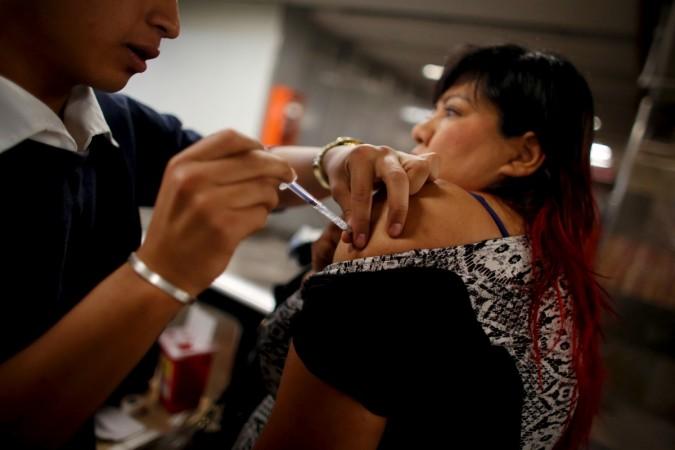
A US doctor explored a weird way to achieve better orgasms: He injected blood on his genitalia to attain stronger sensations.
This was a personal treatment for doctor Charles Runels, who was apparently practising this method for around a year, until his lover, who observed him injecting himself, came to his work place seven years ago on Valentine's Day and asked him to inject her with blood in her clitoris.
"But the next afternoon, she came to see me, and her orgasms came more quickly – very strong, ejaculatory orgasms. The passion, the thunder, the sounds that she was making ..." Dr Runels told theguardian.com.
After seeing the result of injecting his partner with blood, he thought of trying it on his patients too. He charges $1,200 per injection and revealed that so far more than 20,000 women had this injection and the success rate has been 85 percent.
Despite majority of the patients claiming to achieve heightened sensations and better orgasms, various professionals consider the results this treatment to be placebo. The Food and Drug Administration (FDA) described this method as "freakery" and hasn't approved it.
According to a research performed by the American Medical Association (AMA), above 50 million women have difficulty in achieving orgasm.
This injection is popularly called "O-Shot" and Dr Runels earned a nickname called "Dr O". Taking an O-Shot is a 20 minute long process; the shot basically comprises of the patient's blood which is taken from the arm. It is then put into a fluid separating machine centrifuge, which splits the fluids of different densities. The blood then transforms into platelet-rich plasma (PRP), which is then taken in a syringe and injected in the clitoris of the patient.
One of Dr. O's patients had been raped by her husband for 10 years which diagnosed the patient with vaginal eczema and she sensed just pain. She visited Dr O and got treated by the O-Shot; this healed her scars and made her orgasm attaining capacity normal.
Runnels provided the George Washington University with $95,000 for conducting a research on 9 women and to find out the impact of PRP on a type of vaginal eczema (vulvar lichen sclerosus). This sort of scarring is a result of female genital mutilation (FGM), rape, women post-birth and it can occur naturally as well. This study revealed that the inflammation was reduced by PRP and the research got published in the Journal of Lower Genital Tract Disease.

















